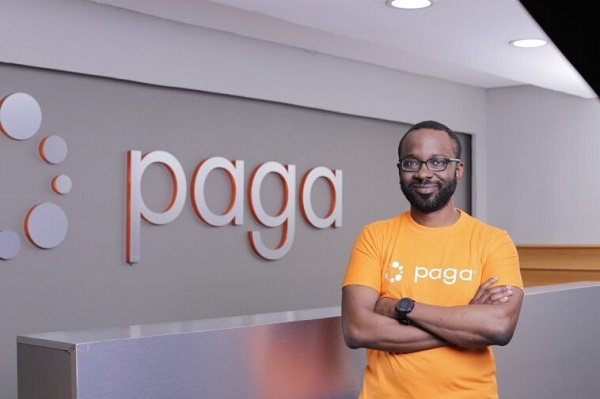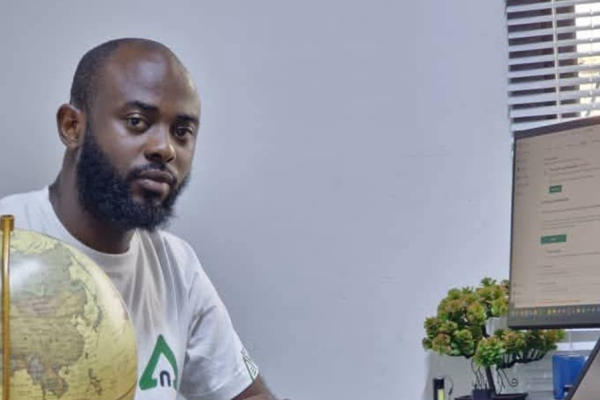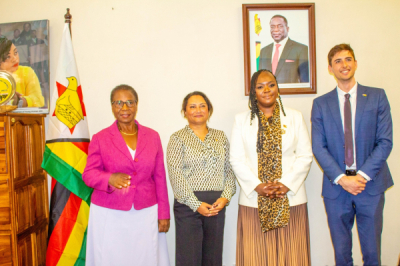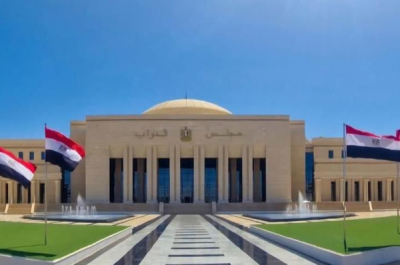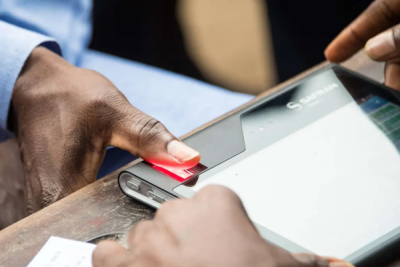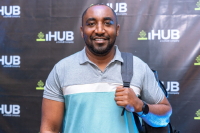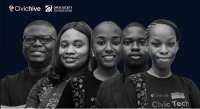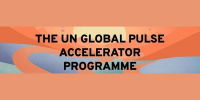Nigerian fintech leader Paga has teamed up with PayPal to launch a new direct-link service. Starting Tuesday, January 27, users in Nigeria can receive global payments straight to their digital wallets. These funds are instantly available in Naira for bill payments, shopping, or bank transfers.
- Cameroonian entrepreneur Franklin Kamga co-founded and leads Notch Pay, an online payment platform launched in 2019.
- Notch Pay centralizes multiple payment methods to help African businesses collect payments online.
- The platform targets enterprises of all sizes with tools for payment links, invoicing, and transaction management.
Franklin Kamga is a Cameroonian software developer and technology entrepreneur. He co-founded and serves as chief executive officer of Notch Pay, an online payment platform built to simplify financial transactions in Africa.
Founded in 2019 by Franklin Kamga and B. Zile Tankeu, Notch Pay provides an intuitive and secure solution. The platform centralizes multiple payment methods in a single interface. As a result, businesses can receive money online without operational complexity.
The platform enables merchants to collect payments from sales conducted through websites or mobile applications.
Users generate payment links and share them via email, SMS, or instant messaging services. This functionality allows customers to complete purchases quickly without complex systems.
Notch Pay also offers an invoicing feature. Businesses can send invoices and track related payments through the platform.
Through a connected professional account, users access a comprehensive dashboard. The interface displays transaction history, payment tracking, and customer management tools. The platform also provides operational tools to support business monitoring and decision-making.
Notch Pay adapts its services to different user profiles. Entrepreneurs, small businesses, associations, and large organizations can access solutions tailored to their needs.
Franklin Kamga earned a software engineering degree in 2015 from the African Institute of Computer Science in Cameroon.
He began his professional career in 2016 as a web developer at Dark Code, a creative agency. In 2020, he joined LGL Transport as a full-stack developer.
This article was initially published in French by Melchior Koba
Adapted in English by Ange J.A de BERRY QUENUM
-
Zimbabwe and Australia discussed bilateral cooperation on artificial intelligence and ICT development.
-
President Emmerson Mnangagwa plans to launch Zimbabwe’s national AI strategy in March 2026.
-
Australia offered technical support as Zimbabwe expands digital investment and connectivity.
Zimbabwe continues its digital transformation drive. Information Communication Technology, Postal and Courier Services Minister Tatenda Mavetera met Australia’s ambassador to Zimbabwe, Minoli Perera, on Monday, January 26, 2026. The meeting focused on exploring bilateral cooperation opportunities in information and communication technologies.
The discussions centered on Zimbabwe’s forthcoming national artificial intelligence strategy. President Emmerson Mnangagwa plans to launch the strategy in March 2026. The roadmap aims to define national priorities for digital innovation, public service modernization, and technological skills development.
Official data showed rising momentum in Zimbabwe’s digital sector. ICT investments increased by 14.5%, alongside improvements in connectivity. Mobile penetration reached 103%, while internet penetration rose to 83%. These figures reflected broader access to digital services across the population.
Australia signaled readiness to support Harare through technical assistance and expertise sharing. Canberra operates an advanced national AI framework. In December 2025, the Australian government unveiled a National AI Plan to accelerate adoption across the economy.
McKinsey estimated that artificial intelligence and automation could generate between $170 billion and $600 billion in additional GDP for Australia by 2030.
The proposed cooperation could cover training, skills transfer, AI governance, and support for local start-ups. Harare aims to structure a job-creating digital ecosystem. The objective carries demographic urgency, as more than 60% of Zimbabwe’s population stands under the age of 25.
Through closer ties with Canberra, Zimbabwe seeks to strengthen its regional technological position. By prioritizing artificial intelligence and international partnerships, the country aims to use digital development as a strategic lever for economic diversification and sustainable growth.
This article was initially published in French by Samira Njoya
Adapted in English by Ange J.A de BERRY QUENUM
- Egypt’s parliament plans legislation to restrict children’s access to social media platforms.
- President Abdel-Fattah el-Sissi publicly urged age limits on minors’ social media use.
- Egypt joins a global regulatory trend as Africa lags in child online protection frameworks.
Egypt’s parliament announced on Sunday, January 25, its intention to draft legislation regulating children’s use of social media. The House of Representatives released the information in an official statement. The statement said the draft law aims to limit the negative effects of digital exposure on minors, including psychological and behavioral risks associated with early use of social platforms.
Lawmakers said they plan to hold consultations with the government and specialized institutions. The process aims to design an appropriate legal framework. The framework seeks to establish mechanisms to control children’s access to social media. The framework also seeks to regulate the practices of digital platforms operating in Egypt.
The initiative follows direct political momentum. President Abdel-Fattah el-Sissi called on the government and parliament one day earlier to examine restrictions on children’s social media use. The president said authorities should consider limits until children reach an age at which they can “manage properly” these digital tools.
Through this move, Egyptian authorities align with a growing global debate over child protection in digital spaces.
Several countries have already adopted concrete measures to regulate minors’ access to social platforms. In France, the National Assembly recently approved at first reading a bill banning social media for children under 15.
Australia adopted a landmark law in December 2025 banning access to social media for children under 16. The law requires platforms to delete non-compliant accounts. The law also imposes heavy fines for violations.
Online child protection remains uneven across Africa. The International Telecommunication Union said that only 39 African countries had adopted a national child online protection strategy in 2024.
At the same time, 32% of African states remained in the drafting phase. Meanwhile, 41% of countries had taken no action. The situation contrasts with rapid digital growth. The ITU said one child worldwide connects to the internet for the first time every half-second.
For Egypt, adoption of such legislation could strengthen protections against digital risks. These risks include cyberbullying, exposure to inappropriate content, and social pressure linked to intensive screen use.
However, the legislative process remains complex. Member of parliament Amira El-Adly recently highlighted the lack of reliable official data on children’s internet use in Egypt. She also cited the absence of verified data on psychological and behavioral impacts. This data gap could complicate the creation of a framework that is effective, balanced, and enforceable.
This article was initially published in French by Samira Njoya
Adapted in English by Ange J.A de BERRY QUENUM
- Benin issued 10.5 million digital civil status and identity documents in 2025.
- Online and remote channels handled 75% of all identification procedures.
- Digital identity services reached 4 million citizens through ANIP operations.
In 2025, the National Agency for the Identification of Persons served 4 million citizens and issued 10.5 million civil status and identity documents in Benin. The agency released the data on Monday, January 26, 2026.
Online and remote channels accounted for 75% of all recorded procedures. The figure highlighted the growing role of digital tools in access to identification services.
The digital transformation relied on multiple access channels. Citizens submitted 37% of requests through eservices.anip.bj. Users submitted 30% of requests through the ANIP BJ mobile application. Users submitted 8% of requests through the USSD service. Physical service counters handled the remaining 25% of requests.
The agency strengthened operational security across platforms. GSM operators processed 3.8 million authentication requests. The system performed 25 million electronic identity checks, or eKYC verifications. These measures supported data reliability and system integrity.
The program forms part of a broader digital transformation agenda launched in 2018. Benin gradually introduced digital public services to modernize administration, improve transparency, and strengthen proximity with citizens.
Digital civil status and identity documents represent a central pillar of this strategy. The system plays a critical role in facilitating access to social and economic services.
ANIP supports the national objective of universal digital public services. Benin deployed several government platforms covering tax declarations, health procedures, and administrative formalities.
These platforms promote service interoperability and data centralization. Authorities aim to improve governance, process traceability, and citizen satisfaction while supporting economic efficiency.
For 2026, ANIP plans to continue registration and document issuance. The agency places particular emphasis on rural areas that remain underserved.
Citizens will access a broad range of services online. These services include birth certificates, residence certificates, certificates of custom and single status, personal identification certificates, and the biometric national identity card.
This article was initially published in French by Samira Njoya
Adapted in English by Ange J.A de BERRY QUENUM
- Togolese entrepreneur Alphonse Gogoli co-founded Deezpro, an online professional training platform launched in 2023.
- Deezpro offers online courses, mentorship, and certification preparation across digital, technical, and management fields.
- The initiative targets skills development and career advancement amid rapid technological change.
Alphonse Gogoli is a Togolese engineer and technology entrepreneur. He co-founded and leads Deezpro, an online training platform focused on professional skills development and career progression.
Founded in 2023, Deezpro targets learners seeking new knowledge as well as professionals aiming to strengthen existing skills. The platform offers a broad catalog of online training programs.
Courses cover office software such as Word, Excel, and PowerPoint. The catalog also includes 3D modeling, web development, data management, artificial intelligence, marketing, management, quality systems, and preparation for professional certifications.
Each training program presents detailed information. The platform specifies course content, duration, and, in most cases, pricing.
Deezpro differentiates its offering through personalized support via mentorship. Learners interact with advisors or tutors, ask questions, and receive tailored academic guidance.
The platform also emphasizes preparation for recognized certifications. International partnerships enable official validation of acquired skills.
Alongside his entrepreneurial activities, Alphonse Gogoli serves as an associate lecturer at the University of Lomé. He also works as a science communicator at Cosmos Materia, a media agency specializing in science and materials engineering.
Gogoli graduated from the University of Lorraine in France. He earned a master’s degree in materials mechanics, structures, and processes in 2018. In the same year, he obtained an engineering degree in mechanical and production engineering from the National School of Engineers of Metz.
In 2022, he completed a doctorate in materials mechanics at the University of Caen Normandy.
Gogoli began his professional career in 2016 as an assistant engineer at Bürkert Fluid Control Systems, a manufacturer of measurement and control systems for liquids and gases.
In 2017, he joined IKEA France as head of technical services and logistics project management. In 2018, he worked as a research and development engineer at the Laboratory for the Study of Microstructures and Mechanics of Materials.
This article was initially published in French by Melchior Koba
Adapted in English by Ange J.A de BERRY QUENUM
- Nigerian entrepreneur Sunday Paul Adah co-founded and leads Radius, a cross-border payments platform for international students.
- Radius enables same-day payments for tuition, visas, exams, and housing while avoiding traditional international transfer constraints.
- The platform launched in 2022 and operates with real-time tracking and competitive exchange rates.
Sunday Paul Adah, a Nigerian entrepreneur based in Boise, United States, co-founded and leads Radius, formerly known as Pay4Me App, a payment platform designed to simplify financial procedures for international students who must pay fees to foreign schools, institutions, or organizations.
Founded in 2022, Radius enables users to pay tuition, visa fees, examination costs, and housing expenses while avoiding constraints linked to traditional international bank transfers. The mobile application allows users to execute same-day payments and monitor transactions in real time, which increases transparency and reduces uncertainty.
The platform integrates currency management tools that offer competitive exchange rates, which remain critical for cross-border payments. Radius also emphasizes a user-friendly interface and provides 24/7 customer support to assist students throughout every step of their education-related financial processes.
In parallel, Sunday Paul Adah founded Across The Horizon in 2015, a study-abroad consulting firm that supports African students and families in identifying affordable international education opportunities. He also founded Scholarships Africa in 2020, a platform dedicated to identifying and applying for international scholarship programs.
Sunday Paul Adah earned a bachelor’s degree in multidisciplinary studies from Boise State University in 2021. He also holds a master’s degree in public administration, government, and politics from Grand Canyon University, obtained in 2023, as well as a master’s degree in entrepreneurship from the David Eccles School of Business at the University of Utah, completed in 2025.
This article was initially published in French by Melchior Koba
Adapted in English by Ange J.A de BERRY QUENUM
- Steve Nganga founded and leads Balozy, a Kenyan service-booking mobile app launched in 2022.
- The platform connects users to verified local providers (“Balozypros”) across household, personal, and business services.
- The application operates free of charge on Android and iOS in Kenya.
Steve Nganga, a Kenyan administrator and serial entrepreneur, founded and leads Balozy, a mobile application dedicated to searching for and booking local service providers.
Balozy launched in 2022 and offers free access to Kenyan users on Android and iOS. The application positions itself as a simple and practical tool that allows users to quickly find qualified professionals when needs arise. The platform connects users with verified service providers, called “Balozypros,” who operate across a wide range of fields, including home maintenance, personal assistance, and specialized services for businesses or specific projects.
Balozy bases its value proposition on immediate access to reliable solutions for both daily needs and one-off situations. Users browse multiple service categories, including cleaning, appliance repair, home maintenance, childcare, mobility assistance, and event services. Users also review provider profiles, compare multiple professionals, and select the option that best fits their needs. The application allows downloads and usage without fees or paid registration.
Before launching Balozy, Steve Nganga co-founded EventPremier in 2016, a digital startup focused on event services, and he served as chief executive officer until 2019. He earned a bachelor’s degree in accounting and management information systems from the University of Maine in 2004, followed by a master’s degree in public administration in 2007.
Steve Nganga began his professional career in the United States in 2008 as a financial analyst at Muckleshoot Indian Casino. He later joined Columbia Threadneedle Investments, where he worked from 2014 to 2019 as a business intelligence architect and then as BI manager. In 2019, he became a BI analyst at Nuance Communications, a U.S. technology company, before joining Microsoft, where he held a BI analyst role from 2022 to 2025.
This article was initially published in French by Melchior Koba
Adapted in English by Ange J.A de BERRY QUENUM
CivicHive has launched its 2026 Civic Tech Fellowship, a 20-week program designed to support 15 West African innovators building tech-driven solutions for civic engagement. Projects focused on responsible AI, climate action, healthcare, or advocacy will receive expert mentorship, monthly stipends, and access to a powerful regional network. Applications are open until February 11 for those looking to turn bold ideas into lasting social impact.
The 2026 UN Global Pulse Accelerator is now supporting teams with proven, implementation-ready innovative solutions. Three selected projects will each receive $60,000 in funding, alongside technical support and mentorship to scale and measure their impact. The program is seeking initiatives that leverage data or AI to advance sustainable development, humanitarian action, and social inclusion. Applications are open through February 11, 2026.
More...
Heifer International has launched the 2026 AYuTe Nigeria challenge, a competition awarding $40,000 in grants to climate-smart agritech solutions. The grand prize winner will receive $20,000, with second and third place taking home $12,000 and $8,000, respectively. Beyond the funding, these young innovators transforming Nigerian agriculture will receive professional mentorship. The grand finale is set for May 2026 in Abuja.
- Algeria adopted a new presidential decree to reinforce cybersecurity governance across public institutions.
- The framework mandates dedicated cybersecurity units reporting directly to institutional heads.
- Algeria faced more than 70 million cyberattacks in 2024, according to Kaspersky data.
Algeria has adopted a strengthened institutional framework to protect its information systems against rising cyber threats. Presidential Decree No. 26-07 of January 7, 2026, published on January 21 in the Official Gazette, defines the organisation and operation of cybersecurity structures within public institutions, administrations and agencies to improve the anticipation and management of cyberattack risks.
Under the decree, each public entity will establish a dedicated cybersecurity unit that remains separate from the technical information systems management function. The unit will report directly to the head of the institution and will coordinate all actions related to data protection and system security, including for supervised agencies.
The cybersecurity units will design and oversee the implementation of cybersecurity policies, identify risks through dedicated mapping, and deploy appropriate remediation plans. The framework also requires continuous monitoring, regular audits, and the immediate reporting of any incident to the competent authorities.
The decree further mandates compliance with personal data protection legislation in coordination with the national supervisory authority. In addition, it promotes coordination with public procurement and internal security bodies to integrate cybersecurity clauses into outsourcing contracts and strengthen the protection of personnel and equipment.
This initiative comes amid a sharp rise in cyberattacks in Algeria. In 2024, the country recorded more than 70 million cyberattacks, according to Kaspersky, which ranked Algeria 17th globally among the most targeted countries. Security solutions blocked over 13 million phishing attempts and neutralised nearly 750,000 malicious attachments, highlighting the scale of the risks facing users and organisations.
Authorities expect the new framework to deliver a lasting strengthening of cybersecurity governance across the public sector and to support Algeria’s digital transition through tighter institutional oversight. In a country where digital systems continue to expand rapidly, the operational cybersecurity framework aims to protect public services, critical infrastructure and sensitive data, while reinforcing confidence among citizens and economic actors in the digital ecosystem.
This article was initially published in French by Samira Njoya
Adapted in English by Ange J.A. de BERRY QUENUM
- Ayooka launched a national digital blood transfusion management platform in Guinea in 2022.
- The system uses artificial intelligence to manage blood stocks, reduce waste and anticipate shortages.
- The platform operates with support from the National Blood Transfusion Centre (CNTS) and health professionals.
Ayooka operates as an integrated digital solution dedicated to the management and optimisation of blood transfusion services in Guinea. The platform functions as a digital information and management system designed to improve the efficiency and security of processes related to blood collection, processing, distribution and traceability. The platform launched operations in 2022.
“Ayooka is the digital information and management system for Guinea’s blood transfusion services,” the platform said. “This integrated technological platform enables efficient and secure management of all processes related to the collection, processing, distribution and traceability of blood and its components.” The platform added: “Our objective is to optimise blood product stock management, guarantee the quality and safety of transfusions, and facilitate communication between all stakeholders in the transfusion sector, including donors, healthcare facilities and laboratories.”
The solution relies on several functional modules to address sector-specific challenges. Ayooka deploys artificial intelligence-assisted stock management to anticipate shortages, reduce waste and plan blood collection operations. The platform also integrates a hemovigilance module to monitor, assess and prevent incidents linked to blood products. In addition, the system allows physicians to track requests and prescriptions for labile blood products, while ensuring full documentation of administration to patients.
The platform also integrates public awareness features through digital and multimedia campaigns designed to encourage blood donations, including among non-schooled populations. A quality assurance component covers the entire transfusion chain, from donation to clinical administration.
With support from the National Blood Transfusion Centre (CNTS) and healthcare professionals, Ayooka aims to increase donation frequency and contribute to saving lives by improving the availability and safety of blood products.
This article was initially published in French by Adoni Conrad Quenum
Adapted in English by Ange J.A. de BERRY QUENUM
Cape Town will host the Africa Green Economy Summit 2026 from February 24-27. Centered on the theme "From Ambition to Action," the summit connects decision-makers with investors to accelerate green and blue projects. With a focus on closing the climate funding gap, the event will feature 50 bankable projects in sectors like renewables, sustainable farming, and electric mobility.


